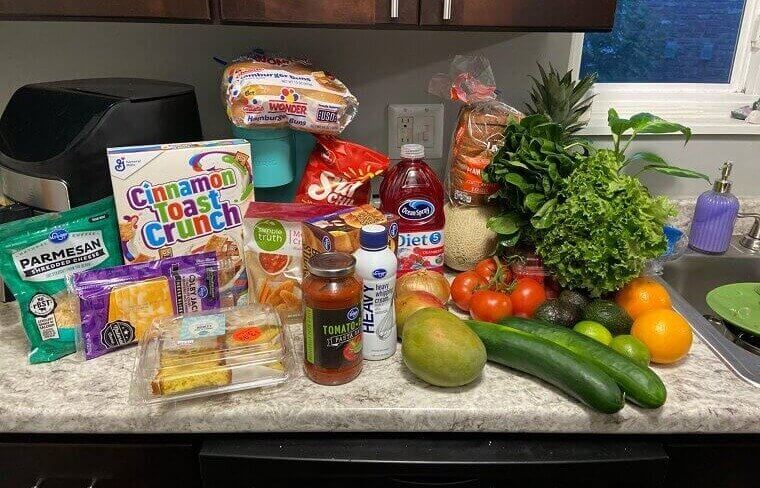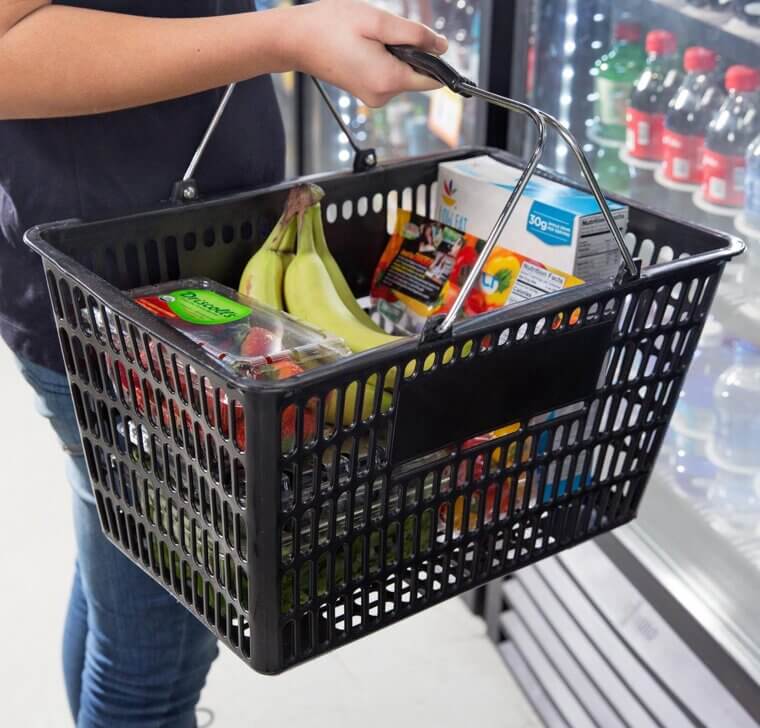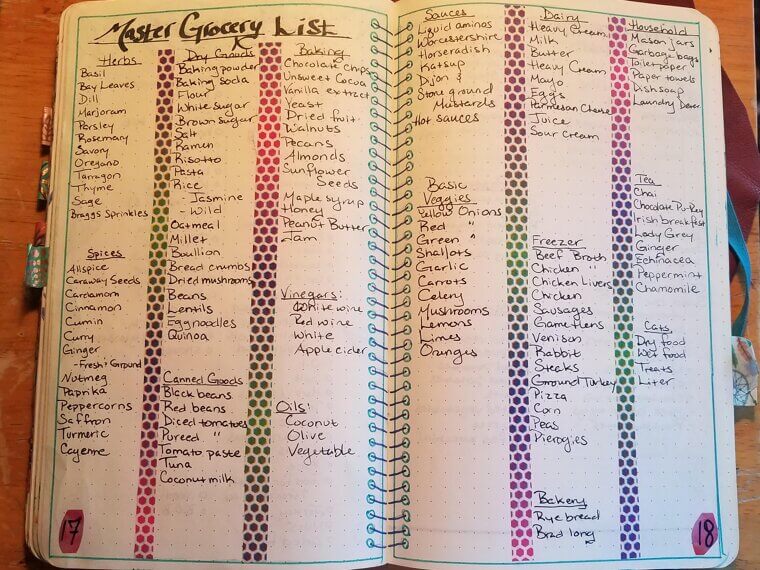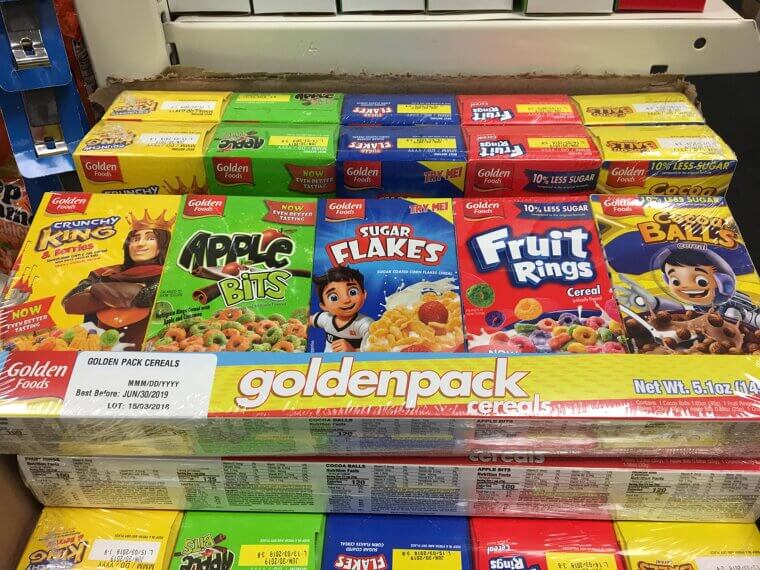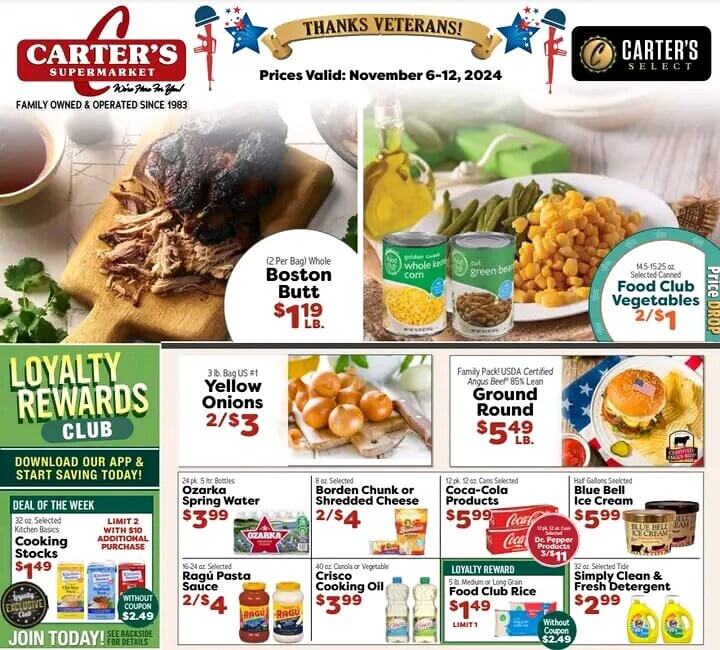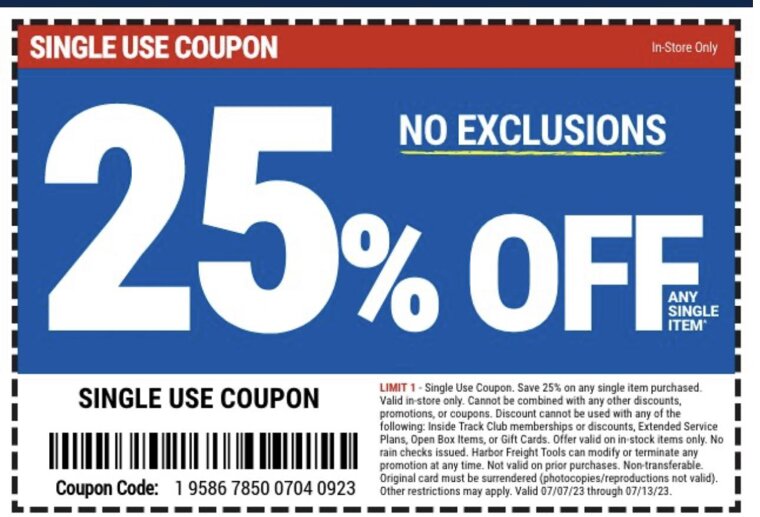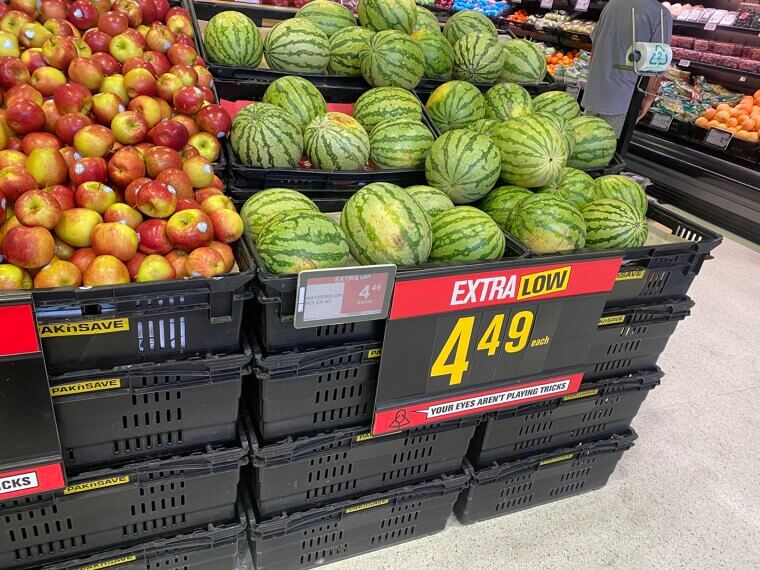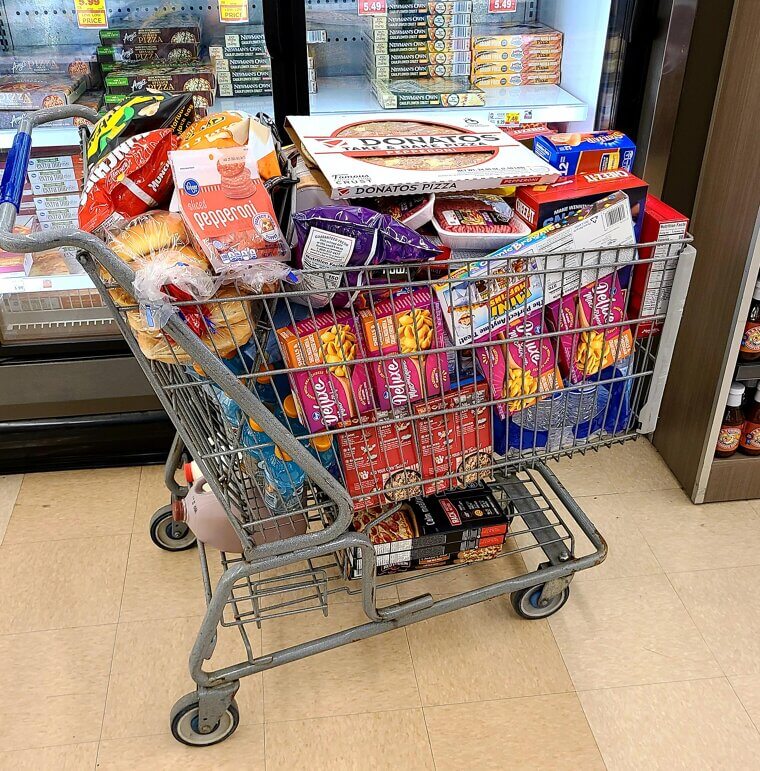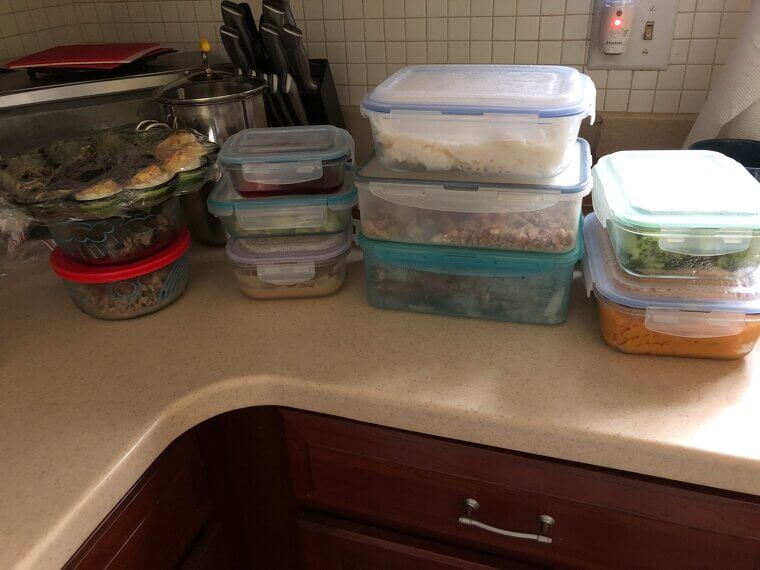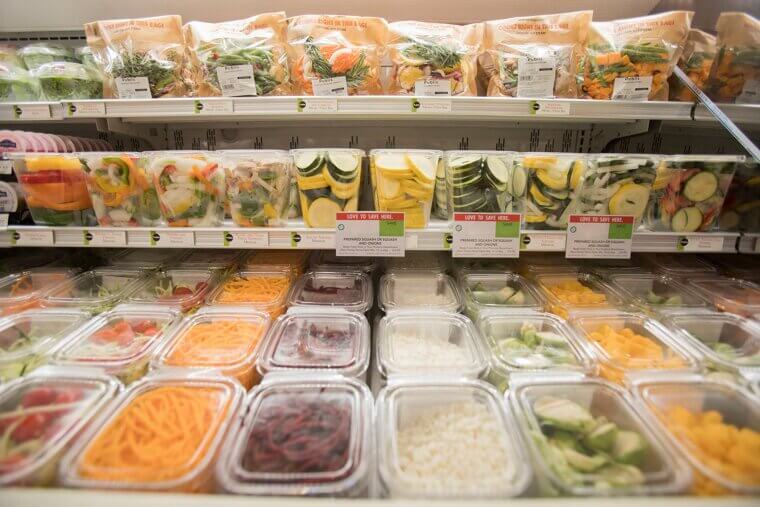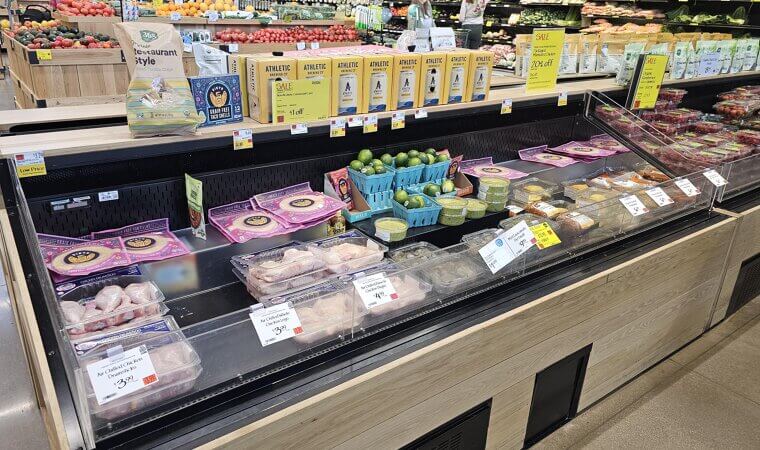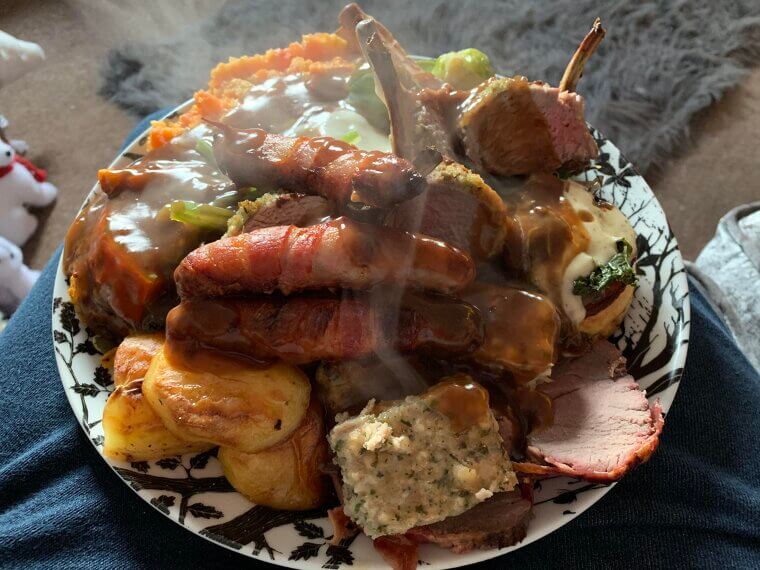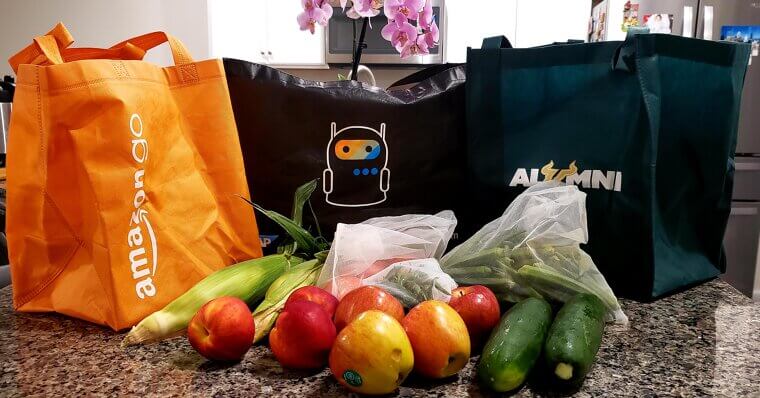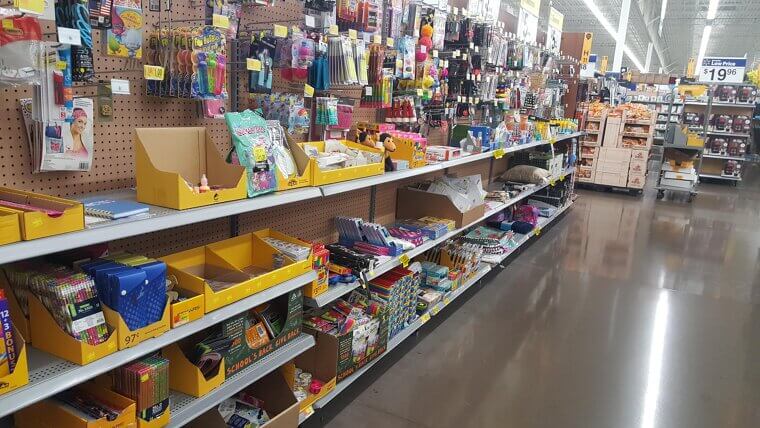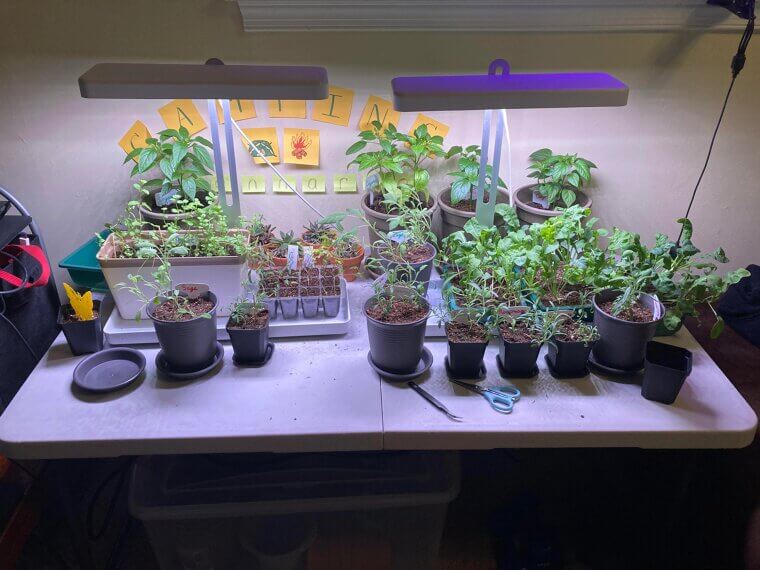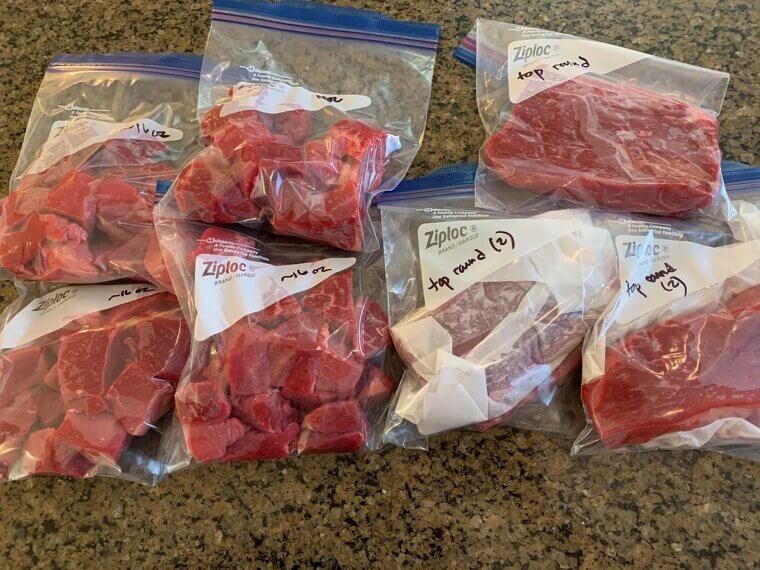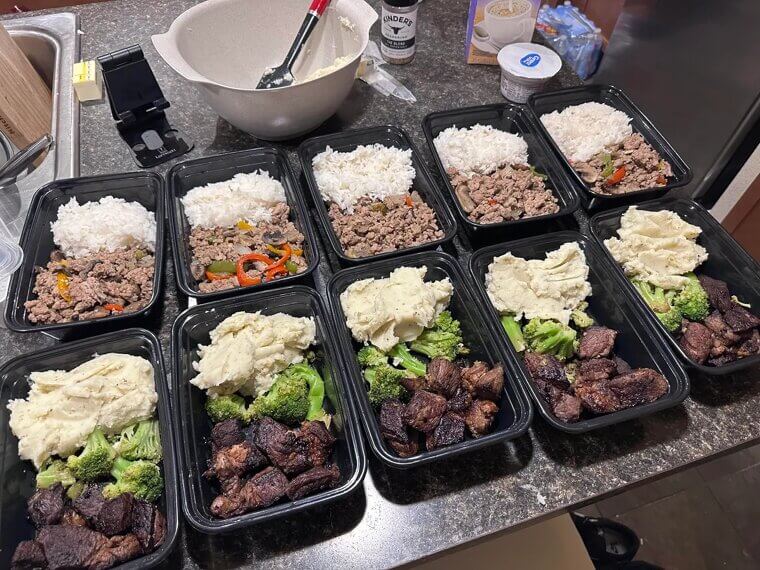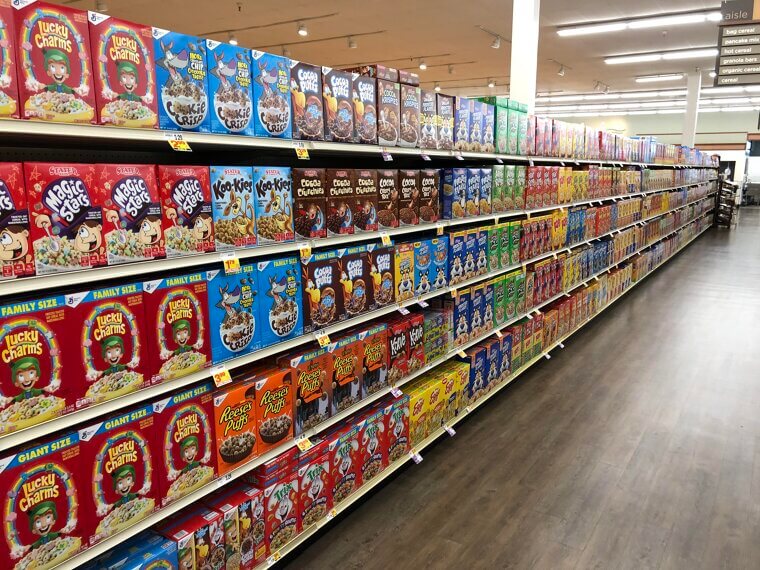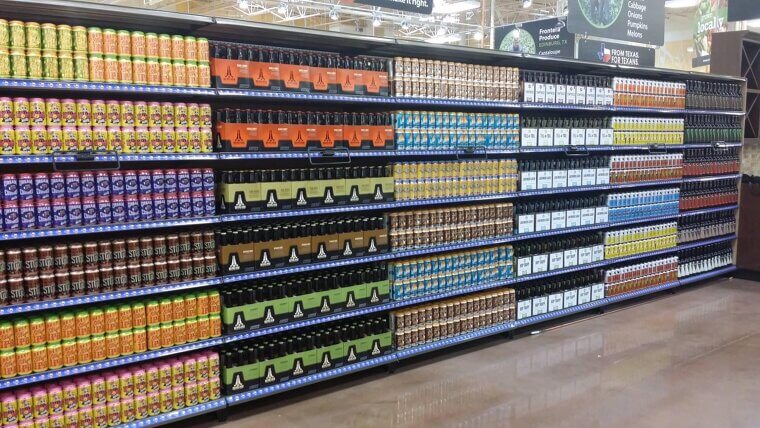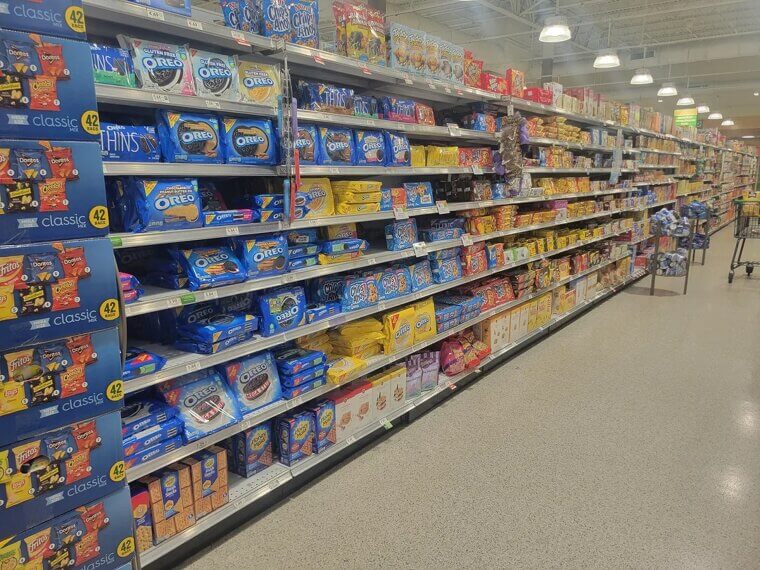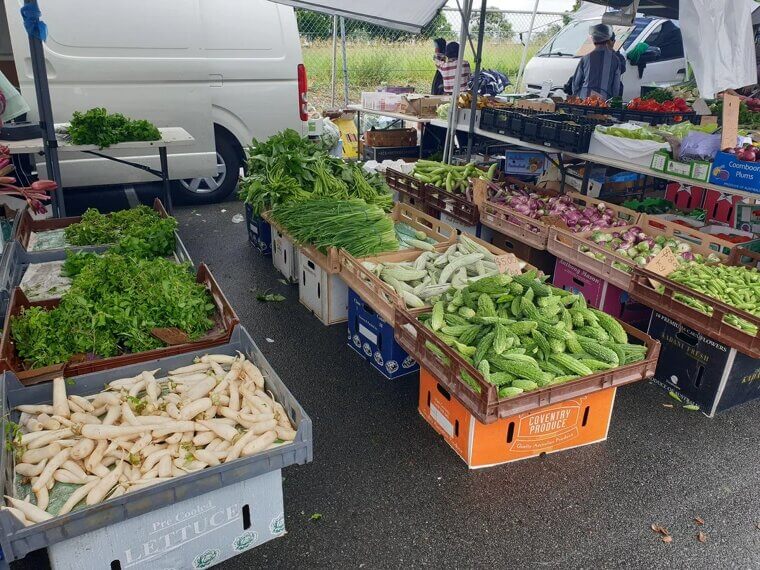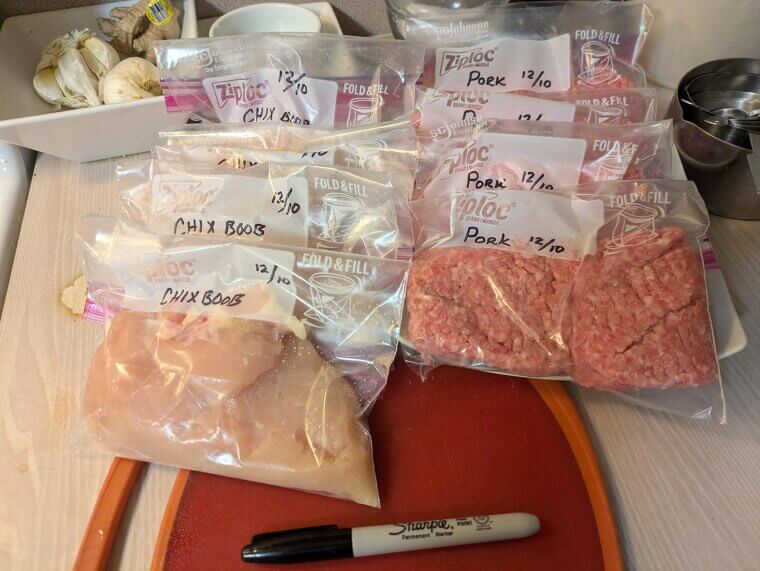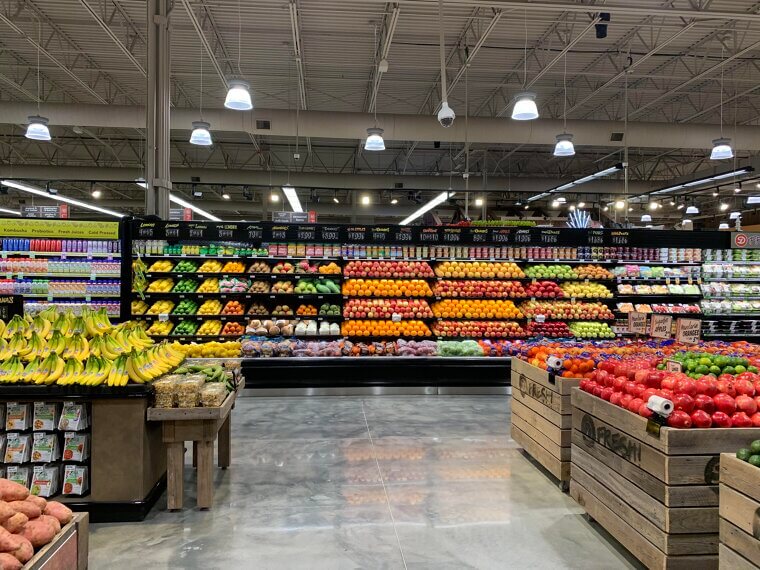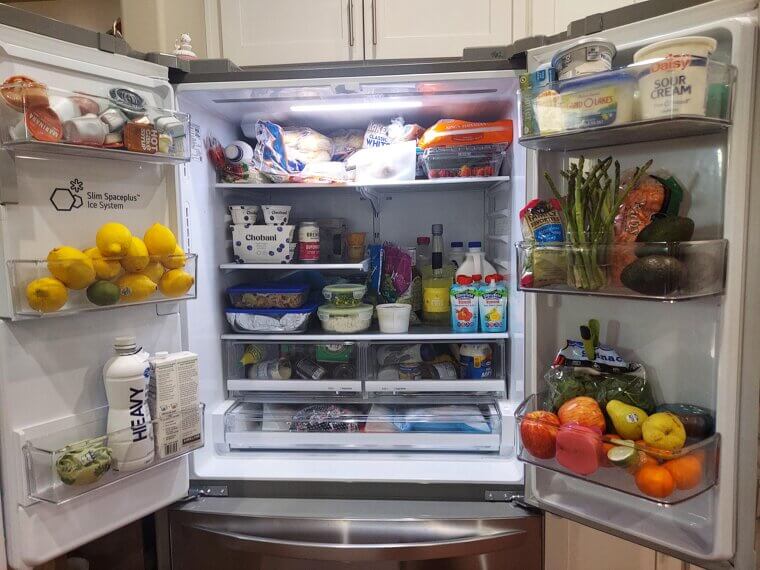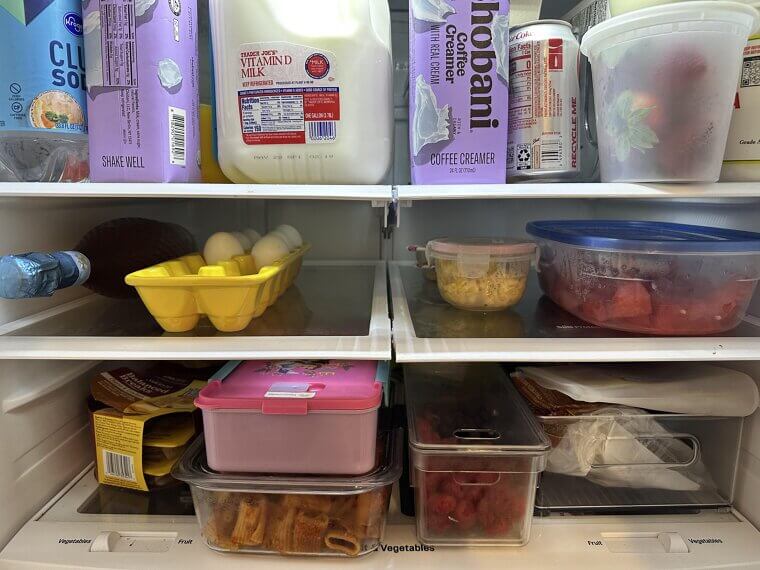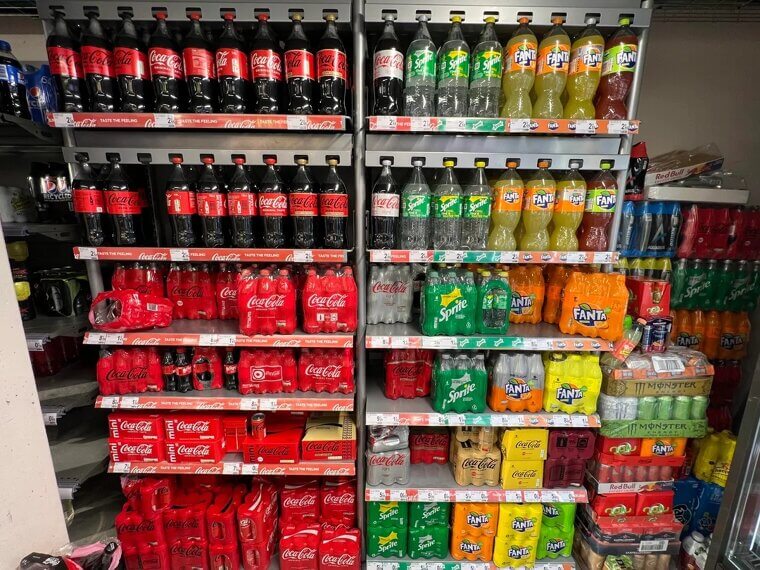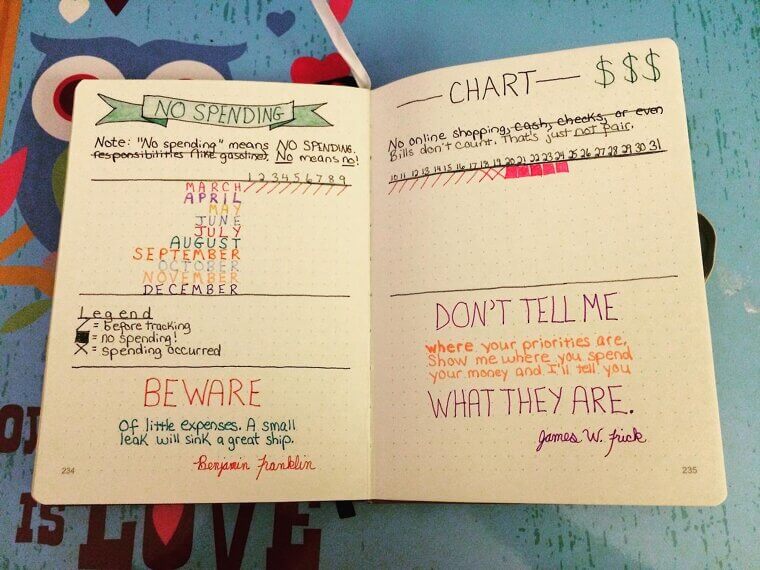The Grocery Hacks and Tips Can Help Reduce Your Bill by Hundreds Each Year
Your grocery bill doesn’t have to surprise you every month. With a few smart habits, you can stretch your food budget without sacrificing flavor or fun. Let’s look at some clever habits to keep your cart full and your wallet happy.
Use a Basket for Quick Shops
If you’re just grabbing milk and bread, skip the cart. A basket limits space, which means fewer “Oh, why not” extras. Besides, carrying it around gives your arms a mini workout. You're saving money and skipping arm day at the gym.
Compare Unit Prices
Bigger packages aren’t always better deals. Check the unit price (per ounce, pound, or liter) to see the real cost. It’s a tiny math moment that can save big over time. Think of it as your secret weapon against sneaky supermarket pricing.
Never Shop Hungry
Empty stomachs make terrible financial decisions. Suddenly, that gourmet cheese and $8 box of cookies feels “necessary.” Eat before you shop, and you’ll stick to your plan instead of shopping like you’re prepping for an eating contest. Your cart and your budget will be leaner this way.
Make a Shopping List (and Stick to It)
Walking into a store without a list is like going on a road trip without a map; you’ll end up somewhere expensive. A list keeps you focused, avoids “Ooh, shiny!” purchases, and ensures you buy only what you need. And let’s be honest, crossing items off feels oddly satisfying.
Buy Store Brands
Brand loyalty can be expensive. Store brands are just as good and come from the same suppliers as the pricier names. Try swapping a few staples like pasta, canned goods, or cereal. Your wallet will notice the difference, even if your taste buds don’t.
Check the Sales Flyer
That colorful weekly flyer is basically a cheat sheet for savings. Skim it before you shop to see what’s on sale. Planning your meals around sale items can cut your bill and make you feel like you’ve cracked the grocery store’s code.
Stack Coupons With Sales
Sales are great, coupons are better, but together? That’s grocery store magic. Wait until an item is on sale, then pull out your coupon. The double discount feels like winning the lottery, minus the taxes and awkward press conferences.
Shop Seasonally
Out-of-season produce travels far and costs more. In-season fruits and veggies are fresher, tastier, and cheaper. It also makes your menu more exciting. Try watermelon in summer, squash in fall. Mother Nature knows how to set a great grocery schedule.
Buy in Bulk (Wisely)
Big packs can be a bargain unless they go bad before you finish them. Pantry staples like rice, beans, and pasta? Perfect bulk buys. A gallon of guacamole? Probably not. Buy only what you can store and actually eat.
Freeze Leftovers
Don’t let food go to waste. Freeze soups, sauces, and cooked meat for future quick meals. It prevents waste, saves money, and makes you look like you totally planned that midweek dinner victory.
Avoid Pre-Cut Produce
Pre-sliced apples and chopped onions are convenient, but you’re paying for someone else’s knife skills. Whole produce costs less, lasts longer, and lets you control quality. A few extra minutes with a cutting board can save you big time over the month.
Shop the Perimeter
Most fresh, whole foods live on the outer edges of the store. You'll have your produce, meat, dairy, and bakery there. The center aisles? That’s where the processed, pricier stuff hides. Stick to the perimeter for healthier, budget-friendly options and venture inside only for pantry staples you actually need.
Plan Meals Ahead
Winging it means extra trips and impulse buys. Plan your meals for the week, shop for exactly what you need, and watch your grocery bill shrink. Planning your meals ahead also means you’ll stress less about the “What’s for dinner?” question every night.
Buy Frozen Produce
Frozen fruits and veggies are harvested at peak ripeness and then flash frozen to maintain the flavor and nutrients. They are often cheaper than fresh produce, last longer, and reduce waste. They are perfect for smoothies, stir-fries, and those last-minute meals when your fridge is looking a bit bare.
Bring Your Own Bags
Reusable bags don’t just save the planet; they can save you money in stores that charge for plastic. They are sturdier, hold more, and save you from making a dozen trips from the car. They also help you avoid having to deal with a ripped paper bag mid-walk.
Check the Clearance Section
Somewhere in your store, there is a magical shelf of markdowns. It's often tucked away, but it is certainly worth the search. You'll often find bakery items, meat, or pantry items close to their sell-by date. These items are great if you will use or freeze them soon.
Grow Your Own Herbs
Fresh herbs can be costly, and they wilt quickly. However, a small pot of basil, parsley, or mint on your windowsill will allow you to have fresh flavor whenever you want, for only pennies. Your kitchen will smell amazing, and you will feel like a gourmet chef.
Skip Bottled Water
Buying bottled water is like paying rent on something you already own. Invest in a reusable bottle, and if needed, a filter. You’ll save money, reduce plastic waste, and stop lugging heavy packs of water from the store.
Buy Meat on Sale and Freeze
When chicken or beef goes on deep discount, grab extra and freeze it in meal-sized portions. You’ll save money, reduce midweek grocery runs, and always have a protein ready to go. Just remember to label it. Mystery meat is less exciting than it sounds.
Portion Control
Cooking big batches? Split them into smaller portions right away. It stretches meals further, keeps overeating in check, and means you have ready-made lunches or dinners. It’s like meal prepping without the fancy containers and Instagram-worthy fridge shots.
Learn the Sales Cycle
Stores aren’t random with sales; they run on a schedule, usually every 6-8 weeks. Pay attention and you’ll spot the patterns. That’s your cue to stock up while prices are at rock bottom, like a grocery ninja striking at just the right time.
Avoid Eye-Level Shelves
Supermarkets place the most expensive items right where you’ll see them first. Sneaky, right? Look high and low to find the better deals hiding out of sight. Yes, you might look like you’re hunting treasure, but your wallet will appreciate the workout.
Skip the Snacks Aisle
Snack aisles are danger zones for your budget. Those chips and cookies will wink at you until they’re in your cart. Avoid temptation altogether and walk on by like you’ve got somewhere better to be. Plan your treats instead of letting them stalk you.
Join a Loyalty Program
Signing up for a store loyalty card is like getting VIP access to discounts and members-only deals for free. Scan it every time, watch the savings add up, and enjoy the thrill of paying less for stuff you were already buying anyway.
Shop Ethnic Markets
Asian, Middle Eastern, or Latin grocery stores often sell spices, produce, and staples for far less than big supermarkets. They also have way more variety. You’ll discover ingredients that make cooking more exciting without making your budget cry.
Use a Calculator
Your brain can only handle so much math in the cereal aisle. Use your phone’s calculator to compare prices, keep a running total, and avoid shock at checkout. Numbers don’t lie, but your “I think I’m under budget” gut feeling often does.
Cook From Scratch
Pre-made meals are fast, but pricey. Cooking from scratch costs less, often tastes better, and gives you bragging rights. You also get to decide exactly what goes in, which means you can skip the mystery “flavor enhancers” and extra salt hiding in pre-packaged dinners.
Use Cash for Groceries
There’s something about paying with cash that makes overspending feel extra painful. Set a weekly grocery budget in bills, and when it’s gone, that’s it. It’s old school budgeting, but it works, and it forces you to prioritize what’s really worth buying.
Avoid Shopping Every Day
Daily grocery trips are basically budget landmines. Each visit invites new impulse buys. Plan ahead, shop once or twice a week, and you’ll save both money and time. Fewer store runs means fewer “Oh, this looks good” moments that drain your wallet.
Use-It-Up Meal
Once a week, make dinner from what’s about to go bad. Random veggies? Stir-fry. Leftover pasta? Pasta bake. These meals are creative, cheap, and often delicious. Your fridge doesn’t mind the weekly reset, either.
Store Food Properly
A little storage knowledge means less waste. Keep lettuce crisp with paper towels, store onions and potatoes separately, and freeze bread you won’t use right away. Every extra day of freshness saves you money and keeps your fridge from becoming a science experiment.
Use Leftovers Creatively
Think of leftovers as a head start, not a burden. Roast chicken can become tacos, soup, or salad. Stale bread? French toast or croutons. The more creative you get, the further your grocery dollars go and the less food you throw away.
Shop Your Pantry First
Before you go to the store, check what’s already in your pantry, fridge, and freezer. You might find enough ingredients for half your meals. Skipping duplicates means more space, less waste, and a grocery bill that doesn’t sneak up on you.
Limit Drinks
Soft drinks, fancy coffee, and juice are delicious but budget killers. Stick to water most of the time and treat the others as occasional treats. You’ll save money, stay hydrated, and still get to enjoy the occasional caramel latte without the side of guilt.
Track Your Spending
Keep track of your grocery costs with a simple tracker. Patterns emerge fast; maybe you’re spending too much on snacks or buying produce you never eat. Tracking gives you control, helps you set realistic goals, and makes celebrating savings so much more fun.

